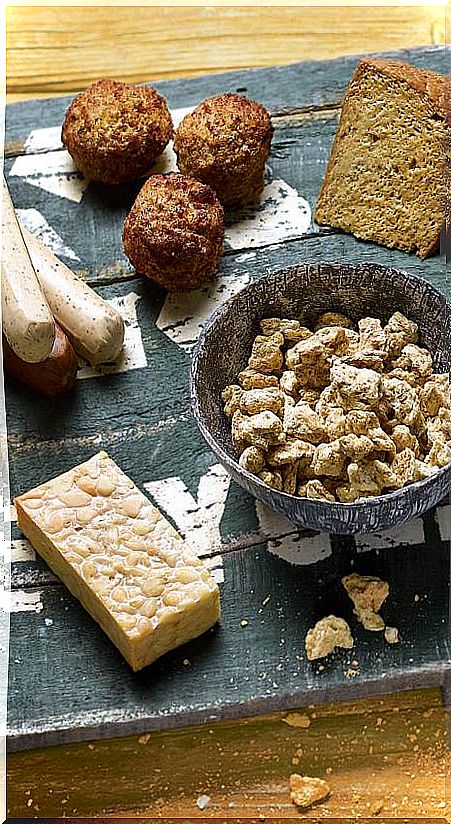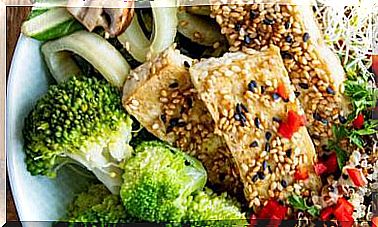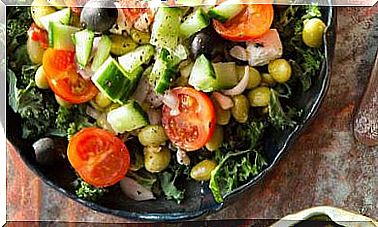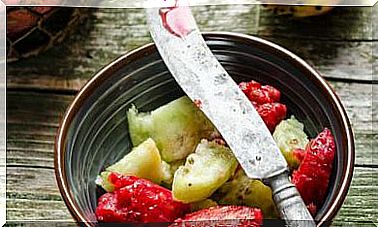Meatless Meat: Discover The Latest Vegetable Alternatives
Their shape, taste and texture are surprisingly close to the original, but they contain less fat and cholesterol, as well as quality proteins.

Foods that replace meats are interesting for at least three reasons: health, sustainability and animal welfare.
The impulse to put these products on the market comes not only from vegans who want to avoid animal suffering, but also from those who are looking for a healthier and more sustainable alternative to meat.
The world population does not stop growing and with it the demand for meat products, which has a huge environmental impact and an unsustainable consumption of natural resources.
“Vegetable meats” improve the health of omnivores since they tend to have less saturated fat than animal meat, do not contain cholesterol and provide fiber and beneficial phytochemicals. The objective of these substitutes is to provide the healthy nutrients of the meat: proteins of high biological value, that is, with a complete profile of essential amino acids.
In a vegetarian diet, the most difficult amino acid to find is lysine. Therefore, well thought-out plant-based alternatives to meat must offer a significant amount of this amino acid.
In addition, in a vegetable diet, it is convenient to include foods such as pumpkin seeds, peanuts, buckwheat or pistachios that, without being the richest in lysine, provide significant doses.
Vegetable meats, surprising novelties
Currently there are new products with a taste, color and texture very similar to meat. To produce them, the composition of the meat has been analyzed and from there it has been recreated with ingredients obtained from plant foods.
In the United States, the pioneering companies are Beyond Meat and Impossible Foods. In Europe we have Vegetarian Butcher, Like Meat and Quorn.
At Beyond Meat they have created chicken and beef substitutes that are no different from the “originals” (tested with blind tastings). In some cases they resort to additives whose safety is controversial, such as the titanium dioxide used to obtain the whiteness of chicken meat.
From Impossible Foods they have proposed to perfectly imitate a beef burger. According to them, the key is in the “heme” molecule and they have found the vegetable version in the root of some legumes.
Among the products Vegetarian Butcher highlights the “chicken” based on soy protein and spice s.
Like Meat offer “chicken” in pieces, fillets or breaded. All without additives, gluten or lactose.
Quorn’s British products achieve a meaty texture thanks to the mycoproteins of the fungus Fusarium venenatum .
How do we cook them?
Vegetable meats make it easy to transition from an omnivorous diet to a vegetarian one. They satisfy the emotional attachment to certain dishes and foods. And they allow us to continue cooking traditional recipes.
Most vegetable meat dishes only need a round and round on the grill or skillet.
To add more flavor you can add soy sauce, vegetable broth and spices.
What foods serve as an alternative to meat?
In the vegetable kingdom, the protein foods richest in lysine are seitan and legumes: lentils, chickpeas, beans, dried peas, lupins, azukis, soybeans and their derivatives (tofu, tempeh, natto …); as well as all those made with these foods: sausages, hamburgers, cold cuts …
But not all meat alternatives are equally healthy. Whenever possible, preference should be given to the simplest products, which are less processed, without added sugars or fats.
Many products that are presented as veggie burgers contain more carbohydrates and fat than protein: they usually provide about 5g, less than half that of a serving of tofu, tempeh or seitan.
A good alternative should meet the following conditions: the main ingredient must be rich in lysine, the protein intake per serving reaches 10 g, they are not fried, they do not contain much sunflower oil and they do not have sugars, refined cereals or unnecessary additives.
Among the alternatives to meat , soybean derivatives stand out , because their amino acid profile is similar.
The tofu is a versatile product that can be made countless recipes. Its flavor depends on the spices and vegetables that accompany it.
The tempeh and natto have a particular flavor thanks to its fermentation process.









